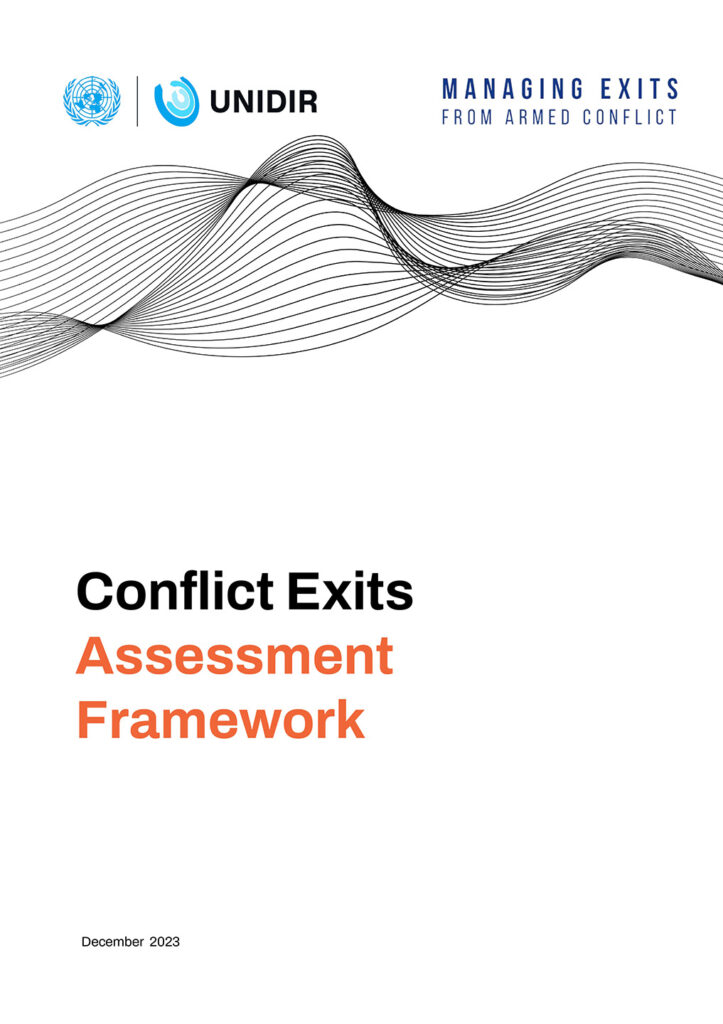The MEAC Conflict Exits Assessment Framework guides how MEAC conducts its studies and assessments in conflict-affected contexts. The Framework was drafted through broad multidisciplinary consultations with more than 100 practitioners working in conflict-affected contexts, policymakers, and experts from political science, economics, sociology, psychology, anthropology, criminology, social work, public health, and neuroscience. Drawing from best practices in these fields and practitioner needs on the ground, the framework is designed as a guide to gather the evidence necessary to enhance understanding of trajectories into and out of conflict and assess the impact of interventions meant to facilitate and support conflict exits and reintegration progress.
From late 2019-2023, this Framework was beta tested across six countries (Nigeria, Cameroon, Chad, Niger, Iraq, and Colombia) as part of a series of multi-year pilot projects to stand up information collection systems and implement long-term assessments of conflict exits and transitions and various interventions meant to support them. Updated with the learning from these studies, the Framework is being publicly released as a living document to be used, interrogated, and updated as needed to support prevention and reintegration efforts.
Ultimately, the MEAC Framework seeks to help the international community adopt a more coherent and empirically based approach to designing, implementing, and assessing interventions meant to support conflict exits and transitions. Armed with better quality and more relevant information, and working in greater unison, the international community can expect to be able to craft more effective and efficient interventions to assist individuals, their communities, and groups in sustainably transitioning away from violent conflict and building sustainably peaceful societies.
Citation: Managing Exits from Armed Conflict Project (2023). "Conflict Exits Assessment Framework," UNIDIR, Geneva, https://doi.org/10.37559/MEAC/23/10
